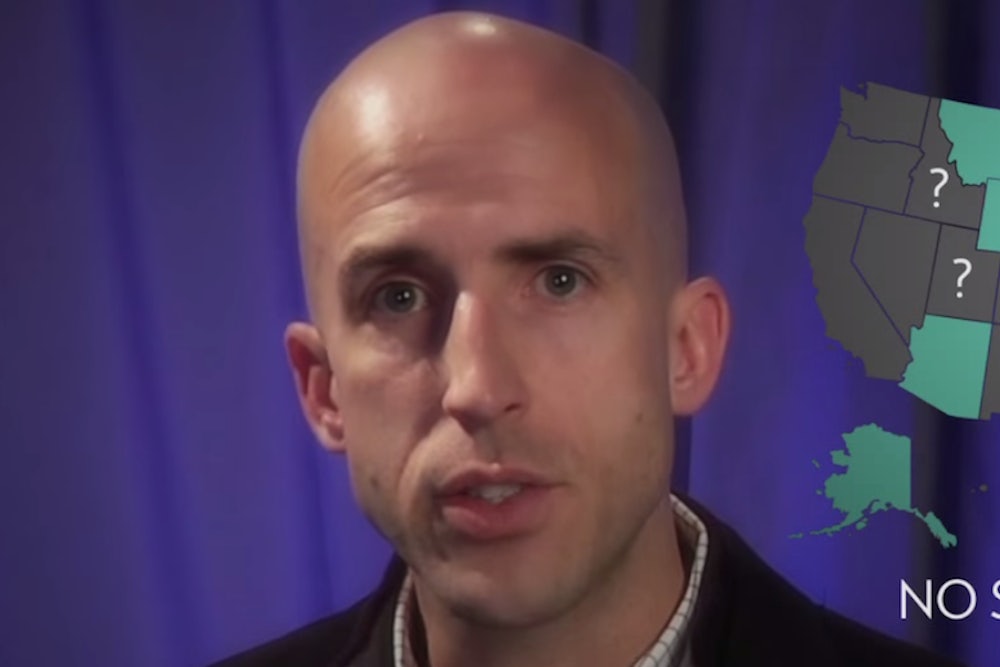To improve their odds in a Supreme Court case that threatens Affordable Care Act subsidies in 34 states, Republicans in Congress have been trying to foam the runway for any conservative justices concerned that a decision against Obamacare might land badly with the public. Their latest effort: a promise to provide an alternative or stopgap measure.
That’s not my interpretation of the GOP’s various, quasi-legislative machinations. They’re coming right out and saying it.
Their theory hinges both on making real legislative progress and on conveying confidence that Congress will be ready to act, come what may. But one of the architects of the King vs. Burwell case is undermining the latter objective.
At a Georgetown University law school debate on Wednesday, Michael Cannon of the Cato Institute explained, persuasively, why a smooth landing is so unlikely if the Court rules in favor of the King petitioners.
“There are two ways to correct this imbalance,” Cannon said. “One of them is, and my preferred way is, you get rid of those subsidies and mandates so that the law is not making health insurance so expensive for the majority of these folks in healthcare.gov anymore. That is basically repeal. Repeal is relief for the vast majority of people in the exchanges, and you would want to do something to help those who could not then afford health insurance on their own. And I think that’s what the Republicans in Congress will want to do.”
Cannon went on:
What the administration will want them to do is reinstate those subsidies…. That is very unlikely to happen. Another possible outcome is that states could establish exchanges, and therefore get those subsidies flowing again. That is also very unlikely to happen for reasons similar to why Congress is unlikely to do that. We’re talking about Republican office holders who are not going to be eager to expand the ACA, increase government taxes, spending and deficits, and impose the individual and employer mandates on millions of people. And give Obamacare their imprimatur. So there could be a standoff. We don’t know how long that would last.
These comments begin about 45 minutes in:
Cannon isn’t just spitballing here. To great effect, he encouraged many states not to set up their own exchanges in the first place, and would presumably take a similarly active role in pressuring Congressional Republicans and Republican-controlled states not to fix the law if the Court breaks it. This gives him special insight into how an adverse King ruling would play out, and it won't be as Republicans want the Supreme Court to believe.
Republicans would run into problems with this Court-lobbying strategy even if Cannon weren’t out there subverting it. The past five years have revealed two cardinal facts about the GOP’s capacity to legislate in the health care arena. First, and contrary to Cannon’s insinuation otherwise, there’s no consensus among Republicans over what an Obamacare alternative should look like. Second, the health policy ideas they claim to support don’t overlap in any way with the kinds of reforms Democrats would agree to, or that President Obama would sign, in a post-King v. Burwell world.
Many of the law’s supporters also believe that a ruling for the King petitioners would create an essentially insoluble problem, and are eager to communicate that to the Court. To their end, Cannon’s candor is extremely helpful. It isn’t just independent corroboration of their story. It’s coming from the opposing side.
